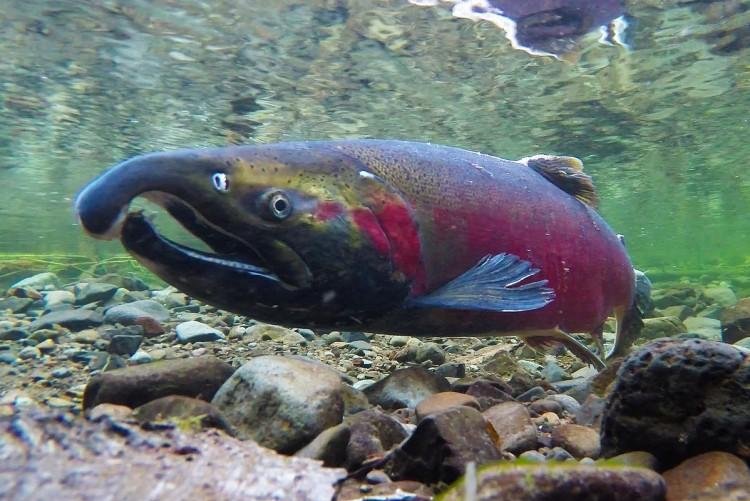Rising CO2 levels could disrupt coho salmon's sense of smell, hindering their ability to navigate upstream to spawn. Photo by Bureau of Land Management
Dec. 18 (UPI) -- As atmospheric CO2 levels continue to rise, increasing amounts of carbon dioxide will be absorbed into the ocean. New research suggests rising CO2 levels in the ocean could disrupt the olfactory abilities of coho salmon.
Salmon rely on their sense of smell to track prey, find mates and navigate their way back upstream to spawn. According to the new study, published this week in the journal Global Change Biology, a compromised sense of smell would pose a serious threat to the health of salmon populations.
Lab experiments showed rising acidity levels caused by elevated CO2 levels inhibits salmon's already vulnerable sensory-neural system.
"Our studies and research from other groups have shown that exposure to pollutants can also interfere with sense of smell for salmon," Evan Gallagher, a professor of toxicology at the University of Washington, said in a news release. "Now, salmon are potentially facing a one-two punch from exposure to pollutants and the added burden of rising CO2. These have implications for the long-term survival of our salmon."
For their tests, scientists exposed juvenile coho salmon to three different levels of acidity for two weeks. After two weeks in the saltwater tanks, the fish were subjected to a series of behavioral and neural tests.
For one of the tests, researchers exposed the three different test groups to salmon skin extract. Exposure typically signals a predator attack and causes salmon to swim away and seek shelter. Fish exposed to low pH levels behaved as expected, but fish exposed to elevated pH levels showed no reaction.
Neural analysis of the salmon's olfactory bulb showed fish exposed to higher acidity levels experience limited brain activity when exposed to smells. Scientists found gene expression pathways related to the olfactory system were changed after the two-week exposure to elevated pH levels.
"At the nose level, we think the neurons are still detecting odors, but when the signals are processed in the brain, that's where the messages are potentially getting altered," said Chase Williams, a postdoctoral researcher in Gallagher's lab.
Though scientists only tested the effects of higher CO2 levels on the salmon's response to predators, scientists think wild fish would also be less able to perform other smell-reliant activities.
"We're hoping this will alert people to some of the potential consequences of elevated carbon emissions," said Andy Dittman, a research biologist at the Northwest Fisheries Science Center. "Salmon are so iconic in this area. Ocean acidification and climate change are abstract things until you start talking about an animal that means a lot to people."















